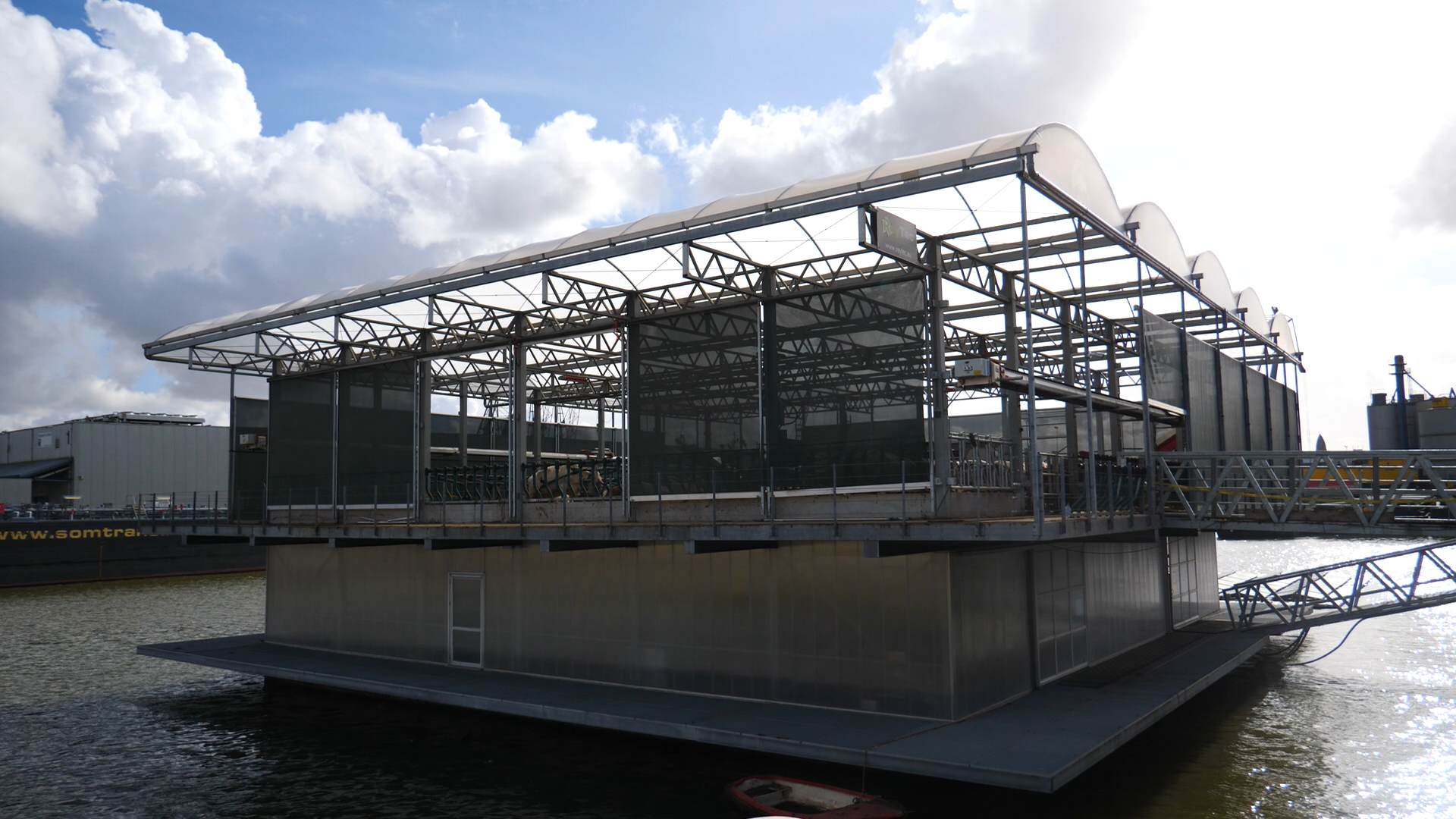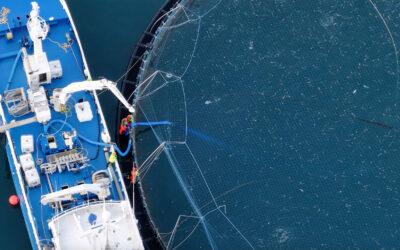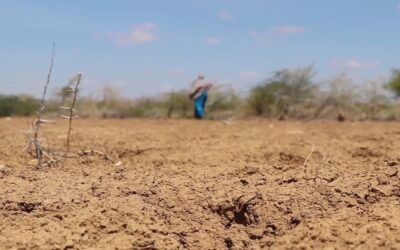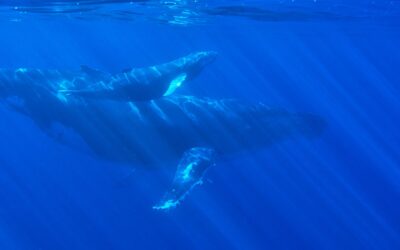An independent project about the loss of balance in our planet that is threatening our future.
The feature documentary
“Until the End of the World”
now released!
More krill fishing and no new protected areas for Antarctic seas after latest talks
Despite a year of interim negotiations, CCAMLR members failed again at the latest meeting to reach agreement on creating any new marine protected areas and rolled back regulation of the burgeoning Antarctic krill fishery. The international body in charge of conserving...
The tug of war to ban Deep Sea Mining, the largest mining activity ever
Members of the Indian Ocean Tuna Commission failed to reach any agreement on reining in catches of yellowfin tuna (Thunnus albacares), which has been declared overfished for the past nine years. A growing number of countries have lined up to stop the “Deep Sea...
Small farmers VS aquaculture at the FAO summit
Opposite views among politicians, producers and fishermen at the last FAO summit, which celebrated the overtaking of fish farming over fishing. Can aquaculture be a sustainable answer to feed the growing world population? The latest summit of the United Nations Food...
NGOs and scientists ask FAO to stop promoting salmon and other carnivorous fish farming
On World Ocean Day over 160 groups and experts wrote to FAO, criticizing the support to "destructive" aquaculture industries.On World Oceans Day, a group of more than 160 non-governmental organizations, communities and individual researchers submitted an open letter...
No mercy for overfished yellowfin tuna at Indian Ocean fisheries meeting
Members of the Indian Ocean Tuna Commission failed to reach any agreement on reining in catches of yellowfin tuna (Thunnus albacares), which has been declared overfished for the past nine years. Although yellowfin tuna comprises almost one-third of the global tuna...
Norwegian salmon farms gobble up fish that could feed millions in Africa: Report
Norwegian salmon farms are taking huge amounts of wild fish from West Africa, mining the food security of the region, according to a report from the U.K.-based NGO Feedback.Norwegian salmon farms are taking huge amounts of wild fish from West Africa, mining the food...
Amid record melting, countries fail again to protect Antarctic waters
For the seventh year in a row, the CCAMLR declined to establish new marine protected areas (MPAs) around Antarctica, despite concern that the melting ice in Antarctica has reached alarming levels, jeopardizing some key populations of penguins, krill, whales, seals and...
Can aquaculture solve the Mediterranean’s overfishing problem?
Researchers reported about a "desolation scenario" around sea bream and sea bass farms in Western GreeceJULIAN’S, VALLETTA and MOSTA, Malta — Mediterranean countries, under the guidance of the U.N. Food and Agriculture Organization (FAO), are investing in the...
Split on Africa Big-Agri sees boycott at UN food summit
Where is the global food system headed? The different responses inside and outside the UN Food Systems Summit in Rome The global food system is on the verge of failure: it is contributing in a decisive way to the environmental crisis and is failing in its main goal,...
Scientists: Fishing boats compete with whales and penguins for Antarctic krill
As Antarctic waters warm due to climate change, krill numbers are declining, stressing wildlife that rely on the small crustaceans at the bottom of the food chain. Two huge fishing vessels make their way through the icy waters of the Southern Ocean, passing among a...
Is Avian Flu Already Endemic? Here’s What Scientists Know
Will avian influenza cause the next global pandemic? Scientists suspect highly pathogenic avian influenza may already be endemic in the Americas and Europe.With more and more news stories cropping up about new strains of avian flu, it’s difficult to know exactly how...
Greek island of Poros threatened by industrial fish farming, say locals
Residents of the Greek island of Poros have expressed fears over a plan to expand industrial fish farming, which threatens to occupy a quarter of the island and cause environmental damage. The Ferret recently visited Poros to produce a video documenting local people’s...
THE ONE EARTH PROJECT
Studies estimate that, from the beginning of time, 113 billion people have ever lived on Earth (source: Population Reference Bureau).
Globally, more than 80 billion land animals are slaughtered every year for food consumption (based on FAO data), including:
- 75.2 billion chickens
- 7.8 billion laying hens
- 1.5 billion pigs
- 533 million rabbits
- 515 million turkeys
- 504 million goats
- 308 million cattle
(Source: FAO 2022)
According to studies:
- 1.1 to 2.2 trillion individual wild fish are caught globally each year
- around half of all fish caught – between 490 and 1,100 billion – are used for reduction to fishmeal and oil, which are mostly fed to farmed animals
- since 1990, farmed finfish numbers killed annually for food have increased nine-fold, to 124 billion in 2019
(Sources: Animal Welfare 2023 and 2024)
- between 691 and 783 million people faced hunger in 2022
- in 2021 close to 193 million people acutely food insecure and in need of urgent assistance across 53 countries/territories
- food systems are responsible for a third of global anthropogenic GHG emissions (Nature 2021)
- between 1990 and 2020, around 420 million hectares of forest (mainly tropical forest) has been lost and a further 10 million hectares, an area the size of Scotland and Wales combined, is being lost each year. (The Royal Society)
- agricultural expansion drives almost 90 percent of global deforestation (FAO 2021)
- as species vanish at a rate not seen in 10 million years, more than 1 million species are currently on the brink (Reuters 2022)
- Every year about 1% of global land deteriorates and the amount of arable and productive land per person in 2050 will be only a quarter of what it was in 1960 (FAO)
Every year, some two million people, mostly in low- and middle-income countries, die from neglected zoonotic diseases. In 2020 UNEP identified seven trends driving the increasing emergence of zoonotic diseases, including:
- increased demand for animal protein;
- a rise in intense and unsustainable farming;
- the increased use and exploitation of wildlife;
- the climate crisis.
(Source: UNEP 2020)
ONE EARTH doc is an independent investigative project to research the environmental, social and ethical impact of the global food system.
We investigate the ever-increasing animal production and the further intensification in factory farming.
We follow a One Health approach: human health is deeply related to animal health and environmental health. So what happens to humankind when the balance gets broken?
We expose the “side effects” of the food system, including deforestation, land, water and resources grabbing, loss of biodiversity, chemical pollution, social impacts.
We also include in our research the ethical matter, investigating the cultural and religious roots that brought us to an unbalanced and unethical food system, that is now jeopardizing our life in this planet.

The documentary and the enquiries
ONE EARTH doc is an independent journalistic project. The main outputs are:
- Feature stories published on international media, investigating the global food system, factory farms, environmental and social matters, fishery and fish farms, deforestation and loss of biodiversity, human health, food security, ethics.
- A series of documentaries investigating different aspects of an unsustainable food system.
Support Us
Support this project through the crowdfunding campaign at this link. Every support is precious to tell this story!
The budget will be used to produce the documentary and the video inquires (video production, editing, post production, distribution).
About us
One Earth is an independent project, based on the team of professionals that worked on the production of Deforestation Made in Italy (feature documentary, ITA, 2019, 67′), about tropical deforestation and the import of forest risk commodities in Europe and Italy, and ONE EARTH – Everything is connected (feature documentary, ITA, 2021, 93′), about the impact of the iper-industrialization of the food system.













